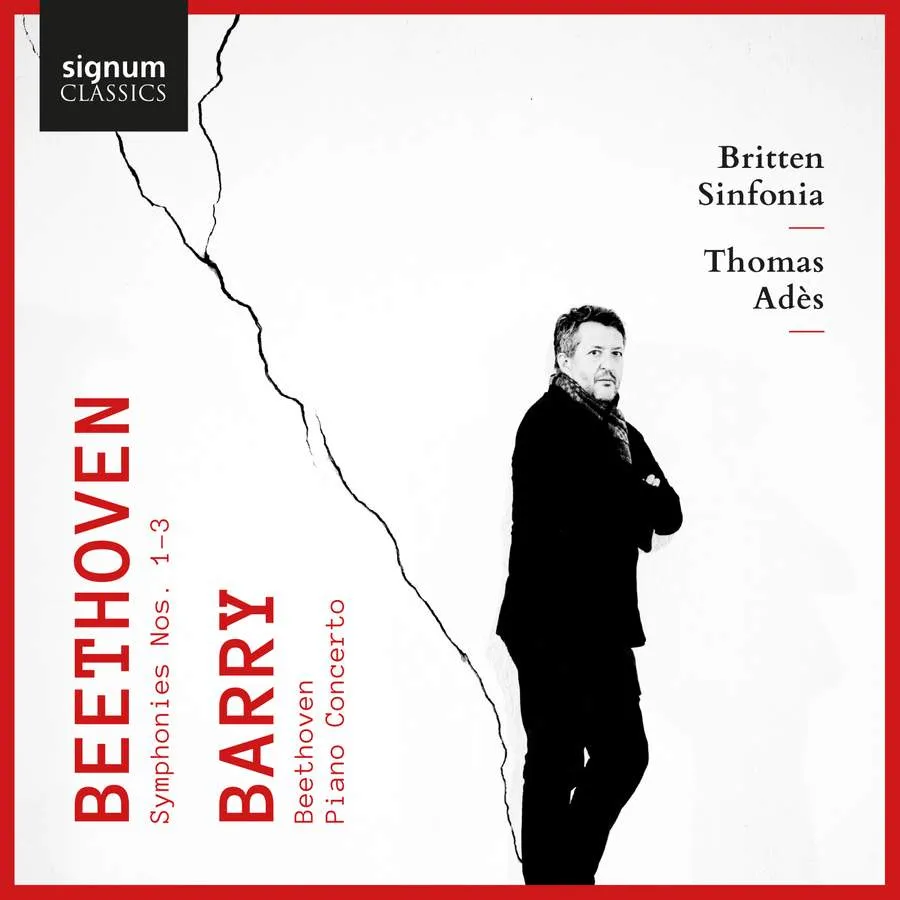
Gerald Barry • Beethoven Beethoven: Symphony No. 1 in C major, Op. 21; Symphony No. 2 in D major, Op. 36; Symphony No. 3 in E flat major, Op. 55 'Eroica'; Gerald Barry: Piano Concerto 'Beethoven' Britten Sinfonia/Thomas Adès Signum Classics SIGCD616 142.09 mins (2 discs)
Some of this year’s commemorative Beethoven recordings have offered purity of performance (eg Igor Levit’s piano sonata cycle) while others have taken a more creative route (Beethoven Reimagined, featuring new arrangements; or Jean-Efflam Bavouzet’s The Beethoven Connection, which includes lesser-known works by Beethoven’s contemporaries). This set offers both, cutting pristine interpretations of Beethoven’s early symphonies with Gerald Barry’s 21st-century zesty homage.
Beethoven (2008) is a micro-opera using the composer’s ‘Immortal Beloved’ letter as its libretto. Barry contrasts pointillistic brass and percussive piano chords with sparse, near-pastiche woodwind melodies. In this live performance (Barbican, 2017), baritone Mark Stone’s Beethoven swaps between falsetto and lower-range passages with impressive dexterity; the final ‘ever thine, ever mine, ever ours’ brings this fascinating work to an unsentimental conclusion.
Heard together with Symphonies Nos 1 and 2, the Eroica sounds as if it were composed decades, not years, later. Thomas Adès and the Britten Sinfonia present tightly knit performances, and dynamic subtleties are largely preserved in the concert recordings (first two at Theatre Royal, Brighton; third at the Barbican – all in 2017).
While Beethoven used double woodwind, Barry opts for double wind machines in the percussion section in the Piano Concerto. Nicolas Hodges, a frequent Adès collaborator, is more orchestral pianist than soloist: the sprawling single movement comprises conversational blocks passed between instruments. Barry’s own description of this work as akin to a ‘play or opera’ is apt.
Claire Jackson